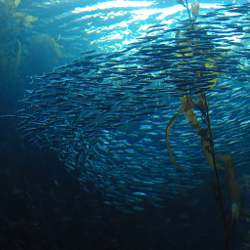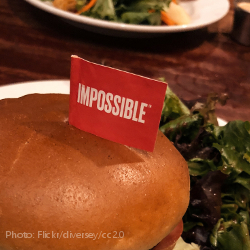At age 17, Paul Molyneaux left home and got a job in commercial fishing. By the late 1980s, he was running a fish processing plant for the Passamaquoddy Tribe in Eastport, Maine, on Cobscook Bay. That was about the same time there was a sudden push to do salmon farming in the bay.
In a recent interview with Dr. Mercola, Molyneaux said:
“The way the promoters—at the time, a company called Ocean Products—sold it to us was [by] saying, ‘You can become farmers of the sea. You can start giving back to the ocean.’ We bought it hook, line and sinker … Last summer, there were about six of us standing on the dock in Eastport, saying, ‘Geez, we thought this was going to be great.'”
It wasn’t great. Local fisheries dwindled. In the late 1990s, infectious salmon anemia virus spread like wildfire among the salmon pens in Cobscook Bay, wiping out the fishery as 2 million fish had to be discarded overnight.
Molyneaux, author of “Swimming in Circles: “Aquaculture and the End of Wild Oceans,” says one of the best things consumers can do is locate a local community-supported fishery.
“What I would say to consumers is, ‘If you want to eat healthy, expect to pay more.’ You’re better off to pay $15 per pound for a Bristol Bay sockeye than $7 per pound for a Chilean farmed salmon. You’re better off eating one meal of sockeye than two meals of farmed fish.”
You can also buy wild-caught fish online. Scroll to the end of this article for a list of online sources of wild-caught fish.
Meanwhile, two companies are trying to build huge land-based salmon farms on the Penobscott Bay, in Maine. One of those farms, proposed by Norway-based Nordic Aquafarms, would clear 40 acres of forest to build what amounts to an experimental project—there are currently no salmon farms of this size in operation anywhere in the world. OCA is working with Local Citizens for Smart Growth to try to prevent the projects from going forward.
Read and watch ‘Swimming in Circles: Aquaculture and the End of Wild Oceans’
Make a tax-deductible donation to help keep salmon farms out of Maine















